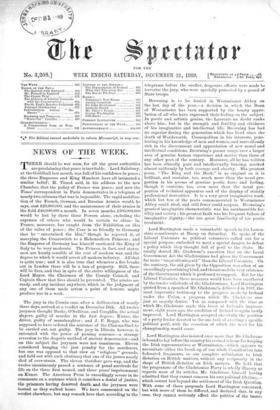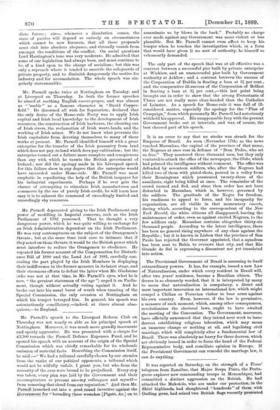Lord Hartington also insisted once more that Mr. Gladstone is
bound to lay before the country his revised scheme for keeping the Irish representatives at Westminster,—which appears to necessitate either the break-up of our whole Consititution into federated fragments, or our complete submission to Irish dictation on British matters, without any reciprocity in the shape of British dictation on Irish matters. He held that the programme of the Gladstonian Party is wholly illusory as regards most of its articles, Mr. Gladstone himself having admitted that they cannot concern his own political lifetime,— which cannot last beyond the settlement of the Irish Question. With some of these proposals Lord Hartington concurred, but with more of them he differed, and declared that, in any case, they eatmot seriomily affect the polities of the imme.
diate future ; since, whenever a dissolution comes, the state of parties will depend so entirely on circumstances which cannot be now foreseen, that all these proposals must sink into absolute abeyance, and virtually vanish from amongst the conditions of the conffict. On social questions Lord Hartington's tone was very moderate. He admitted that some of our legislation had always been, and must continue to be, of a kind open to the charge of socialism ; but this was only a reproach where it tended to unsettle the safeguards of private property, and to diminish dangerously the motive for industry and for accumulation. The whole speech was sin- gularly statesmanlike.











































